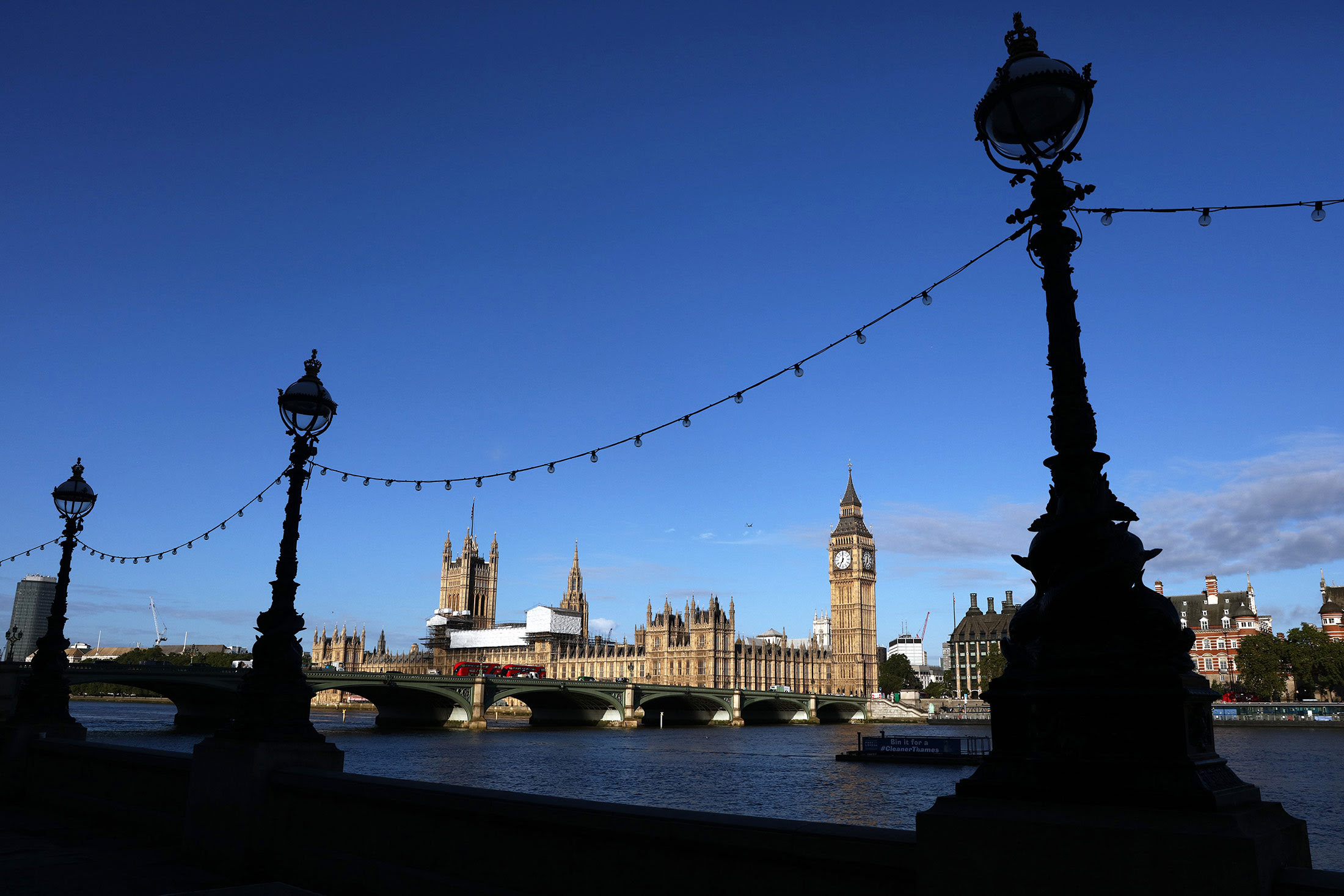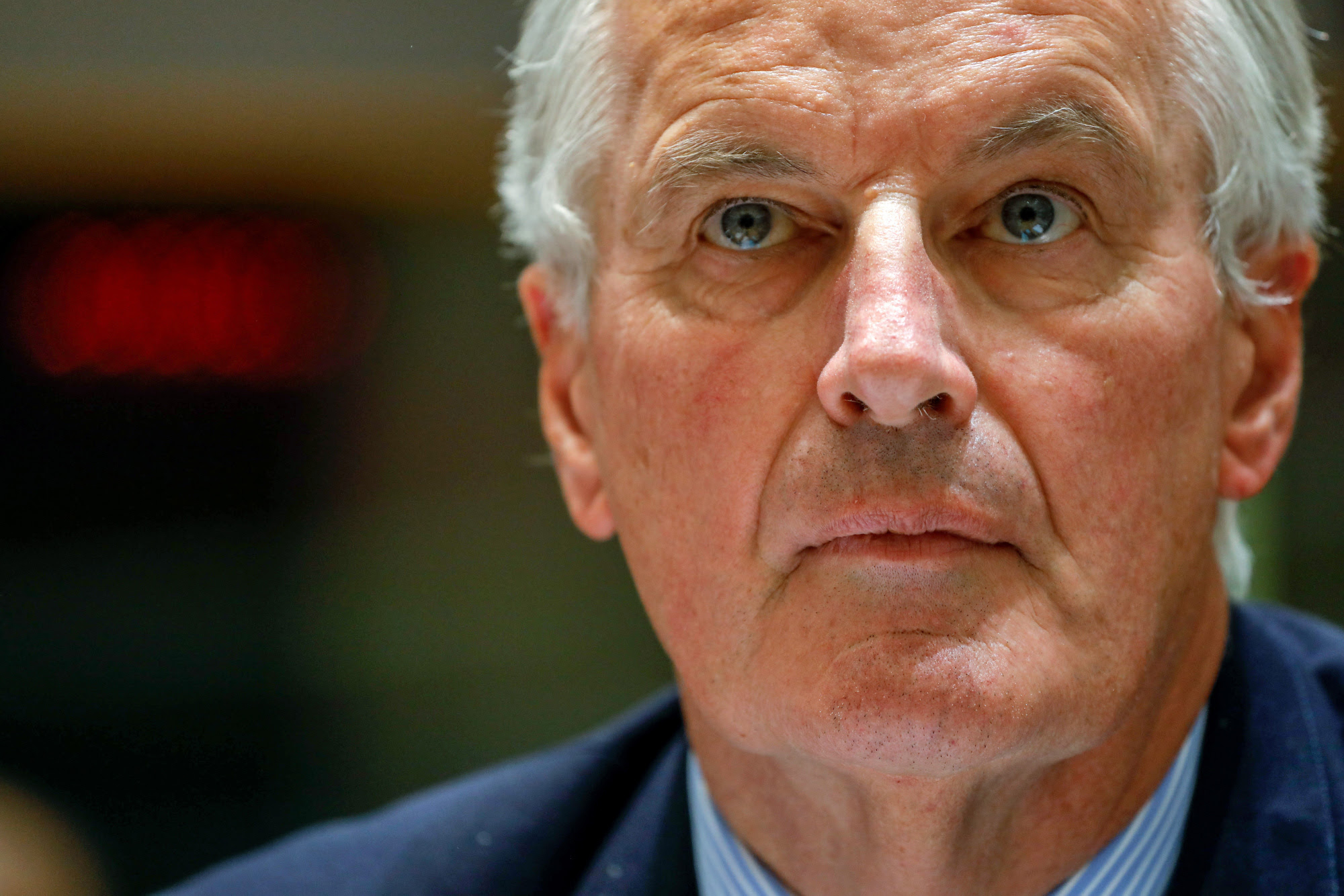What counts as ‘sufficient progress’?
The Brexit talks look way behind schedule.
The EU has repeatedly warned the U.K. that the two sides must make “sufficient progress” on citizens’ rights, the border between the two Irelands and a financial settlement before negotiations can turn to a trade deal.
October had been penciled in as a possible moment to switch topics, but the European Union’s chief negotiator, Michel Barnier, thinks that timeframe is unlikely, according to three people familiar with the matter.

Barnier is proposing to extend the first stage of the talks for a few months, although he hasn’t completely excluded a deal by October. He and his U.K. counterpart, David Davis, want to meet more often to speed things up, Politico reported.
Any delay would increase the risk of Britain leaving the bloc in March 2019 without a full exit package — already in doubt — or even a trade deal with the EU.
By Land or By Sea
Irish Prime Minister Leo Varadkar wants the Irish sea to become the post-Brexit border with the U.K., without any customs and immigration control at the land border with Northern Ireland, the Times reported.
That would upset members of the Democratic Unionist Party, MPs from Northern Ireland, because it would blur its identity as part of the U.K. The newspaper quoted DUP MP Ian Paisley Jr. as saying that “the only people discussing a sea border are people who should know better.”
The Irish government has turned away from a solution that would use surveillance technology such as cameras to patrol the land border between Northern Ireland and the Republic of Ireland, the newspaper said.
Costly Fruit
British households are in for a rude awakening when they see just how expensive oranges from Spain and artichokes from France will become with Brexit, the Institute for Fiscal Studies warned in a report about what leaving the EU will mean for grocery bills.
About 30 percent of food sold in the U.K. is imported, and 70 percent of that comes from the EU, the report said. The poorest 10th spend 23 percent of their income on food compared with 10 percent for the highest earners, it said.

Poland Sees the Bright Side
The U.K.’s divorce from the EU is proving a bittersweet affair for Poland’s finance minister.
On the one hand, the eastern European nation will lose a political ally: Poland and Britain are closely aligned on issues from deregulation to concern over yielding powers to Brussels, according to Mateusz Morawiecki, who’s also deputy prime minister. But on the other, Brexit may ease a labor shortage in Poland that he calls a “major headache.”
“I like that Brexit is pushing some Polish citizens out of the U.K., because it’s bringing more qualified workers, more experienced workers” home, Morawiecki said Wednesday in an interview in London.
Much of Europe’s ex-communist east is suffering from a dearth of workers as citizens seek higher wages in other parts of the continent. At almost one million, Poles are the U.K.’s biggest immigrant group. Unemployment in Poland is at a record-low 5 percent.
Brexit in Brief
- Economic output in British cities will be 1.2 percent lower on average in a “soft Brexit” and 2.3 percent weaker under a “hard Brexit,” while Aberdeen in Scotland will be hardest hit, according to a report by the Centre for Cities
- Allied Irish Banks says while Britain’s economy remains “relatively robust” after last year’s Brexit vote, there are “signs of weakness emerging” and the bank won’t invest more in the country until there is more clarity around U.K. leaving the EU, the Financial Times said
- Brexit isn’t hurting office space prices in the City. The tower known as the Walkie Talkie sold yesterday for a record £1.28 billion and today a stake in the Heron Tower is said to be on the block. Asian investors are snapping up properties due to the weaker pound
- Citigroup is planning to move part of its private bank to Madrid, according to El Pais. Fewer than 50 bankers will be sent there.



Comentarios
Publicar un comentario